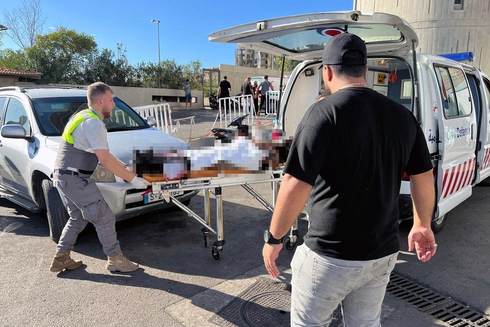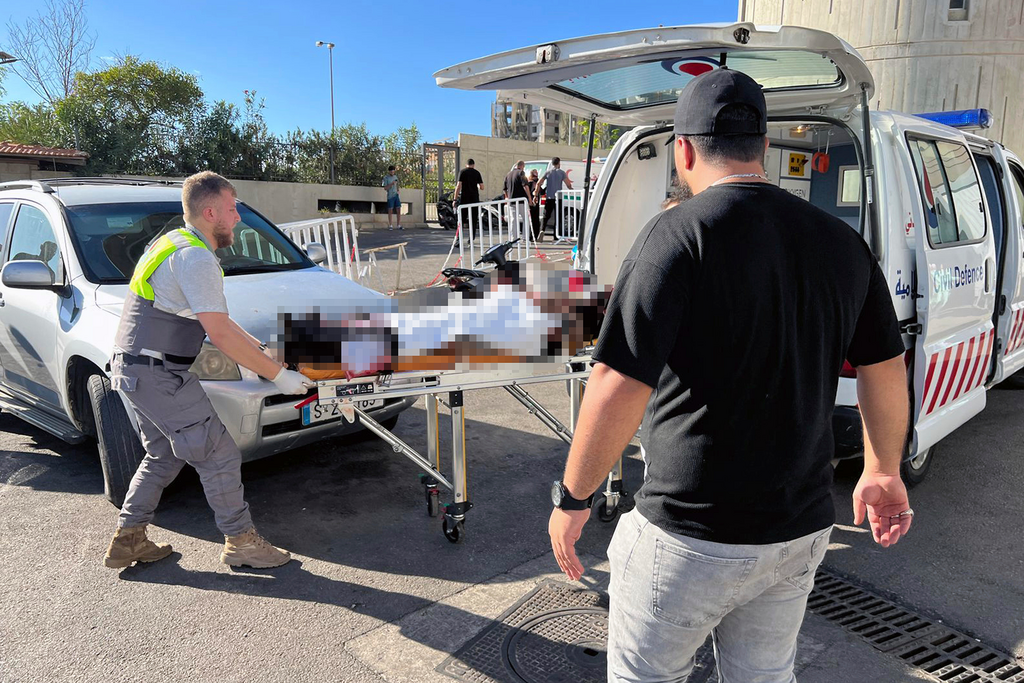
2,800 Hezbollah members hurt in Lebanon as pager explosions shock the organization. A cyber assault?
Hezbollah’s efforts to evade Israeli tracking lead to explosive consequences. Who's behind the breach?
Shock and astonishment—that’s how you can describe the reaction in Lebanon and within Hezbollah’s leadership after over 2,800 people, including 200 who were seriously injured, were affected by the explosion of their pagers across Lebanon this afternoon. Most of the victims were members of the organization. Hezbollah reported three deaths, including a young girl, while Lebanese authorities confirmed at least nine fatalities. The incident is already being referred to as the “cyber massacre” on social media.
The seniority of the victims was initially unclear, and Hezbollah was slow to release details. However, reports of the injury of Mujtaba Amani, the Iranian ambassador to Lebanon, suggest that some high-ranking individuals may have been affected.
Since the conflict in the north began last October, Hezbollah has faced severe losses, with over 400 members eliminated in targeted strikes by the IDF, mainly in southern Lebanon. Hezbollah realized that these losses were largely due to the organization’s increased reliance on mobile devices. In response, they ordered members, particularly in southern Lebanon, to cease using mobile phones.
In search of safer alternatives, Hezbollah reportedly began using pagers, which exploded today. These devices were introduced to Hezbollah only several months ago. The organization likely believed these devices were safer than cell phones, and they did not anticipate a cyberattack from this direction.
Ironically, just yesterday, Hezbollah sources told Arab media that they had increased security measures to prevent further targeted assassinations by Israel. They claimed that over the past 11 months, they had studied Israel’s infiltration methods and taken steps to counter them. Hezbollah even boasted that its "success" in hitting Israel's Unit 8200 (a claim that was unfounded) had slowed the pace of Israeli assassinations. Whether the organization truly believed this or if it was mere propaganda to amplify its "revenge" operation is unclear, but these statements highlight the extent of the surprise Hezbollah faced in today’s cyber attack.
Despite Israel’s silence on the matter, both Lebanon and Hezbollah have pointed an accusing finger at Israel. “We hold the Israeli enemy fully responsible for this criminal aggression,” Hezbollah said in a statement, adding that Israel “will certainly receive its just punishment for this sinful aggression”.
The key question is what will happen in the coming hours and days as Hezbollah processes the details of the incident. The explosion of these devices comes at a time of peak tension, with the threat of war looming between Israel and Hezbollah, especially amid the apparent failure of ceasefire negotiations in Gaza. Even before today’s explosions, senior Hezbollah officials stated they would not agree to a ceasefire and that residents of northern Israel would not return to their homes without a ceasefire.
In Gaza, Hezbollah rejected all efforts by the U.S., France, Saudi Arabia, and Egyp) to create a formula for internal political order in Lebanon that would include electing a president and, thereby, lead to a ceasefire. Over the past 11 months, Hezbollah has signaled its determination to continue its skirmishes with Israel despite the heavy losses it has suffered, though it clearly does not want an all-out war—partly due to internal pressure within Lebanon. This reluctance for full-scale conflict was also evident in Hezbollah’s relatively moderate response to the elimination of Fuad Shukr. However, Hezbollah’s recent attempt to assassinate a former Israeli security official, as revealed by the Shin Bet today, indicates that Hassan Nasrallah and his commanders continue to adhere to their statements. If Hezbollah decides to retaliate for the pager incident, it is likely they will seek a technologically sophisticated response to harm Israel.














